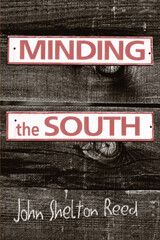


In this remarkable collaboration, one of the nation's leading civil rights lawyers joins forces with one of the world's foremost cultural psychologists to put American constitutional law into an American cultural context. By close readings of key Supreme Court opinions, they show how storytelling tactics and deeply rooted mythic structures shape the Court's decisions about race, family law, and the death penalty.
Minding the Law explores crucial psychological processes involved in the work of lawyers and judges: deciding whether particular cases fit within a legal rule ("categorizing"), telling stories to justify one's claims or undercut those of an adversary ("narrative"), and tailoring one's language to be persuasive without appearing partisan ("rhetorics"). Because these processes are not unique to the law, courts' decisions cannot rest solely upon legal logic but must also depend vitally upon the underlying culture's storehouse of familiar tales of heroes and villains.
But a culture's stock of stories is not changeless.
Amsterdam and Bruner argue that culture itself is a dialectic constantly in progress, a conflict between the established canon and newly imagined "possible worlds." They illustrate the swings of this dialectic by a masterly analysis of the Supreme Court's race-discrimination decisions during the past century.
A passionate plea for heightened consciousness about the way law is practiced and made, Minding the Law will be welcomed by a new generation concerned with renewing law's commitment to a humane justice.

You're in the American South now, a proud region with a distinctive history and culture. A place that echoes with names like Thomas Jefferson and Robert E. Lee, Scarlett O'Hara and Uncle Remus, Martin Luther King and William Faulkner, Billy Graham, Mahalia Jackson, Muhammad Ali, Elvis Presley. Home of the country blues and country music, bluegrass and Dixieland jazz, gospel music and rock and roll. Where menus offer both down-home biscuits and gravy and uptown shrimp and grits. Where churches preach against "cigarettes, whiskey, and wild, wild women" (all Southern products) and where American football is a religion.
For more than thirty years John Shelton Reed has been “minding” the South—watching over it, providing commentary upon it. He is the author or editor of thirteen books about the South, and despite his disclaimer regarding formal study of Southern history, Reed has read widely and in depth about the South. His primary focus is upon Southerners’ present-day culture and consciousness, but he knows that one must approach the South historically in order to understand the place and its people.


The opening section marks a return for Pack to the musical sensuality of the lyric. These short lyrics are uniquely his: the sequence begins in Vermont and concludes in the Andromeda galaxy, providing an opportunity to hold in mind the nurturing sun of our solar system.
The poems of the collection's middle section, written in the flowing narrative and meditative mode familiar to Pack's many admirers, take up the themes of human sexuality and consciousness. And the final section, replete with puns and paradoxes, shows Pack at his most playful as he muses on art, technology, romantic and marital desire, and the stubborn longing for transcendence. The poet concludes the volume with a sobering plea, "The Trees Will Die," to heed the sun's example, to cherish and protect our planet and all its living things.
READERS
Browse our collection.
PUBLISHERS
See BiblioVault's publisher services.
STUDENT SERVICES
Files for college accessibility offices.
UChicago Accessibility Resources
home | accessibility | search | about | contact us
BiblioVault ® 2001 - 2024
The University of Chicago Press









